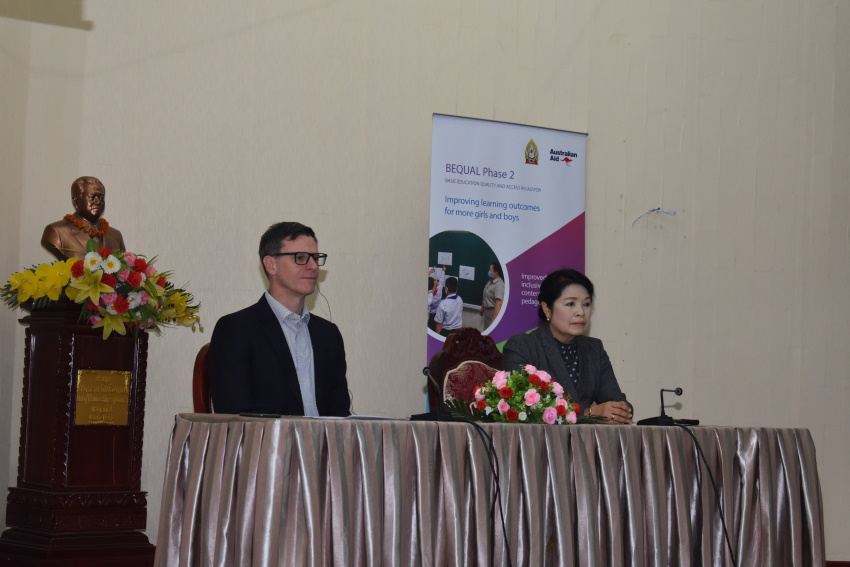
Ambassador of Australia and Vice Minister of Education open a two day workshop on inclusive education
On the occasion of the International Day of People with Disability, MoES and Australia organized a two-day workshop on inclusive education for Master Trainers and Provincial Trainers
The International Day of People with Disability (IDPwD) is held on 3 December each year. It is a United Nations observed day celebrated internationally. IDPwD aims to increase public awareness, understanding and acceptance of people with disability and celebrate their achievements and contributions.
According to the 2017 Lao Social Indicator Survey II, 2% of children aged 2 to 4 have functional difficulty in at least one domain (seeing, hearing, walking, fine motor, communicating, learning, playing, controlling behaviour). This percentage increases with remoteness and poverty. Children with severe disabilities are usually kept at home, and often ‘hidden’ to the outside world, due to stigma and discrimination. Factors such as gender, ethnicity, poverty, distance to school or physical access to classrooms and bathroom facilities constitute other barriers to the education of children with disabilities.
Moreover, COVID-19 has eroded education and development gains across the region. And in these circumstances, the biggest impacts are always felt by the most vulnerable – particularly women and girls, people living with a disability and those in rural and remote areas.
Recognizing these challenges and the importance of mobilizing support for inclusive education, the Ministry of Education and Sports of Lao PDR (MoES) and the Australian Government, through the BEQUAL program, organized a two-day training workshop on 6th and 7th December at the Research Institute for Educational Sciences. The event was opened by H.E. Dr Sisouk Vongvichit, Vice-Minister of Education and Sports, Lao PDR and H.E. Paul Kelly, Ambassador of Australia to Lao PDR.
“This event demonstrates a renewed joint commitment; the Ministry of Education will continue to work in partnership with Australia, in particular on improving access to quality education for children with disabilities” said H.E. Dr Sisouk Vongvichit, Vice-Minister of Education and Sports, Lao PDR in her opening remarks.
H.E. Paul Kelly added “Disability inclusion is a core priority for the Australian government and a cross-cutting issue in our aid program. Australia is committed to support the Ministry of Education to provide quality primary education for all children in Laos, no matter their abilities or their gender.”
The two-day training was designed to improve understanding, knowledge and skills in relation to inclusive education for 45 Master Trainers and Provincial Trainers from 30 districts in the BEQUAL Program’s 7 target provinces (Luang Namtha, Bokeo, Phongsaly, Xieng Khouang, Houaphan, Savannakhet and Khammouane) and 3 target Teacher Training Colleges (Savannakhet, Luang Namtha and Khang Khai). Different departments of the Ministry as well as relevant development partners and representatives from disabled people’s organisations also attended the training.
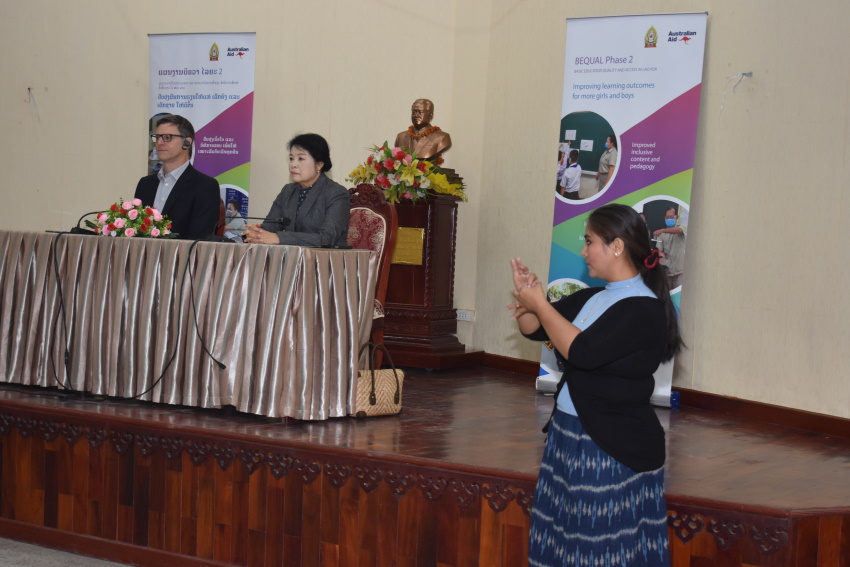
Opening speeches were all dubbed in Sign Language

Ambassador of Australia and Vice Minister visiting the exhibition on inclusive education
Following opening remarks by H.E. Dr Sisouk Vongvichit, Vice-Minister of Education and Sports, Lao PDR and H.E. Paul Kelly participants toured an exhibition of teaching and learning resources that have been produced with the support of the BEQUAL Program, development partners, and disabled people’s organisations. The exhibition was followed by focused training for Master and Provincial Trainers on supporting learners with disabilities. The final activity of the event was a panel discussion featuring guest speakers with first hand experience of supporting learners with disabilities.
The objective of the training was to equip those teacher trainers and pedagogical support providers with the necessary skills and competences to support the primary teachers working with children living with disabilities and take action to close the gap in educational outcomes. The workshop will also provide them with a network of specialists and organizations who could provide advice.
H.E. Dr Sisouk Vongvichit, Vice-Minister of Education and Sports, Lao PDR said “Teachers play a vital role in promoting concept of “No one left behind”. Our job is to ensure that teachers receive adequate support for skills development. And provide ongoing support for teachers. This two-day workshop provides not only the skills but also a network for teachers to gain support from other sectors.”
H.E. Paul Kelly said “Every child has a right to education. So, the Australian Government is proud of its renewed support to the Ministry of Education and Sports to promote inclusive education through teacher professional development. We believe it is key to encourage and support teachers throughout the country to make lessons more inclusive for all children, no matter their ability, gender or ethnicity.”
Every class group is different and during their career, teachers will encounter a wide diversity of learner abilities, backgrounds, and aspirations. Being a good teacher is about adapting teaching styles to meet these diverse needs. Disability is just one aspect of this. So, teachers need to understand how to adapt their teaching to ensure all students can fully participate, and feel welcome, in class.
During the training the participants learned how to recognize different type of disabilities and some strategies to support students in an education environment. First, it is very important to connect with the parents of the student. The classroom arrangement is also key. Teaching resources and activities need to be adapted to include all children. And the involvement of other students is also important to strengthen inclusion.
H.E. Dr Sisouk Vongvichit, Vice-Minister of Education and Sports, Lao PDR concluded: “I am looking forward to more inclusive classrooms, where all students, especially those experiencing disadvantage, have the opportunity to realise their potential through access to quality education, delivered by skilled teachers”.
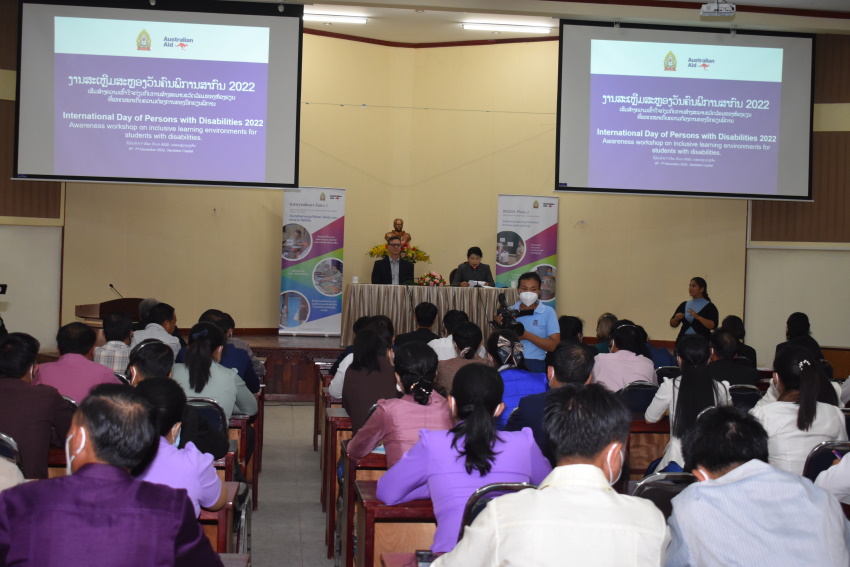
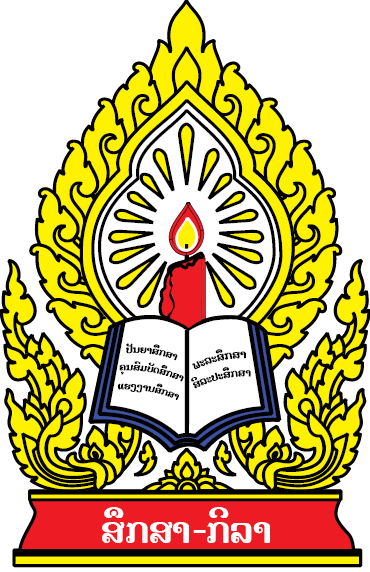
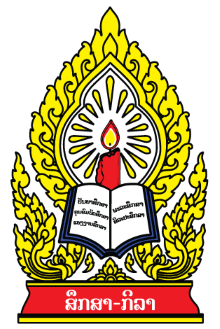


 ພາສາລາວ
ພາສາລາວ